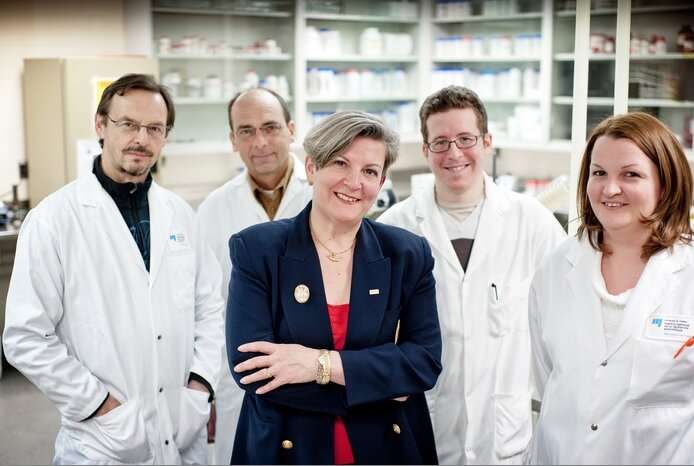Developing probiotic beverages without animal protein

Most products enriched with probiotics and protein are made with dairy products. However, consumer demand for plant protein is growing. The nutritional value of these proteins must therefore be improved to be comparable to that of animal proteins.
A team led by Professor Monique Lacroix at the Institut national de la recherche scientifique (INRS) has demonstrated that fermenting drinks fortified with pea and rice proteins yields the same quality of protein as casein, an animal protein found in milk. The findings were published in the Journal of Food Science.
Increasing protein intake
Using plant proteins poses some challenges. For one thing, plant proteins are deficient in certain essential amino acids necessary for the body's proper functioning. Since the body itself doesn't produce these amino acids, they must come from food. The combination of pea and rice proteins helped counterbalance essential amino acid deficiencies through complementarity.
That said, plant proteins are also harder to digest. "They often are non soluble in water and under globular. That means our digestive enzymes have more difficulty breaking them down. Animal proteins, on the other hand, usually take the form of elongated fibers that are easily processed by digestive enzymes," said Professor Lacroix.
But when pea and rice proteins are added before the fermentation stage during production of a fermented beverage, they can be predigested by lactic acid bacteria (LAB). This allows the production of peptides (protein fragments) resulting from the breakdown of proteins during fermentation, thereby facilitating their absorption during digestion.
The study, carried out in collaboration with Bio-K+, used a specific formulation containing the bacteria Lactobacillus acidophilus CL1285, L. casei LBC80R and L. rhamnosus CLR2. These LAB, whose probiotic functions have been scientifically proven and licensed by Health Canada, were used in this study to produce the fermented drink enriched with pea and rice proteins.
More information: Johanne Manus et al, Protein quality of a probiotic beverage enriched with pea and rice protein, Journal of Food Science (2021). DOI: 10.1111/1750-3841.15838
Journal information: Journal of Food Science
Provided by Institut national de la recherche scientifique - INRS





















